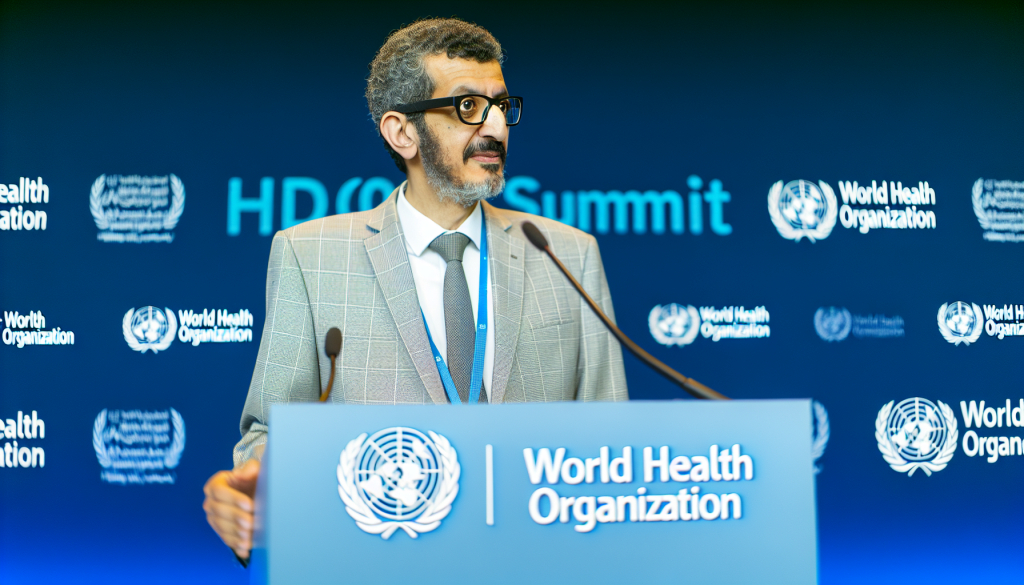Restoring confidence and creating a fresh funding model: H20 Summit to pave the way for G20 health goals

Global policymakers from the G20, health leaders, and stakeholders from both public and private sectors are gathering in Geneva on 19–20 June for the annual Health20 (H20) Summit. This event is co-hosted by the World Health Organization (WHO) and organized by the G20 Health & Development Partnership.
This year’s Summit is taking place during a turbulent time for the global health sector, amid economic challenges, geopolitical changes, and significant reductions in development aid. The discussions will center on shaping the future of health financing, building resilient systems, and reinforcing public confidence in healthcare globally.
This gathering also marks the end of the current G20 cycle which began in 1999, initially formed as a venue for Finance Ministers and Central Bank Governors from both industrialized and developing nations to address global financial issues.
Since the launch of the G20 Health Ministers Meeting in 2017 in Germany, the H20 Summit has become an annual tradition. This year, participants will explore ways to reinforce health and development issues within the G20’s next policy cycle, which begins in 2026 under the leadership of the United States.
Outcomes from the Summit's two-day sessions are expected to contribute to policy discussions at the United Nations General Assembly in September and inform the upcoming G20 health meetings scheduled in South Africa this November.
“At a time of pressing global challenges, WHO appreciates the role of the H20 in championing important health issues,” said Dr. Tedros Adhanom Ghebreyesus, Director-General of WHO. “As we respond to reduced funding and shifting health burdens, new solutions are needed—focusing more on health promotion and disease prevention. WHO continues to support countries in moving from donor dependence toward self-reliant, sustainable health systems.”
Dr. Ghebreyesus addressed the Summit as its keynote speaker. Other noteworthy contributors included H.E. Dr. Jaleela bint Alsayed Jawad Hasan, Minister of Health of Bahrain; H.E. Dr. Jean Kaseya, Director General of Africa CDC; H.E. Dr. Hanan Al Kuwari, Advisor on Public Health Affairs and former Health Minister of Qatar; Prof. Orazio Schillaci, Italy’s Health Minister; Dr. PA Motsoaledi, South Africa's Health Minister; and Dr. Sania Nishtar, CEO of GAVI.
Highlighted Reports at the Summit
Two important publications were introduced during the event. The first is the Global Legislators Report on NCDs and Mental Health, which equips lawmakers with strategies to prioritize prevention in national health agendas. The second is a Health Taxonomy Report that presents a framework for new investment tools in health, aiming to harmonize communication between governments, businesses, and investors. This is especially relevant following the adoption of a key resolution on health funding at the recent World Health Assembly.
The Summit, built around the theme “Reimagining Partnerships & Rebuilding Trust in Global Health,” explores the necessity of collaborative financing models. Public-private cooperation is seen as vital to innovation and increased impact, and the H20 Summit serves as a space where experts in health policy meet influential decision-makers in finance and politics to elevate health priorities within broader G20 strategies.
Noncommunicable diseases—such as cancer, diabetes, and chronic respiratory conditions—are responsible for over 43 million deaths annually. Meanwhile, mental health concerns, including anxiety and depression, affect nearly 1 billion people globally. These growing challenges have serious implications for global productivity and development. The two major reports presented during the Summit offer practical guidance for governments to close funding gaps around NCDs and mental illness.
In her remarks, H.E. Dr. Jaleela bint Alsayed Jawad Hasan noted, “The release of the NCD and Mental Health Legislators Report is an important step forward. It highlights how lawmakers can transform health promises into meaningful action. Bahrain is working to build a health system rooted in responsible governance, strong legislation, and targeted investment.”
Speaking about financial strategies, Dr. Agnes Soucat, Director of Health and Social Protection at Agence Française de Développement, emphasized the importance of clarity in health financing models. “There is an existing taxonomy for operating expenses in health, but capital investment remains undefined—yet that’s what most investors are focused on,” she explained.
Note to Editors
The G20 Health & Development Partnership is a non-profit advocacy group representing over 27 organizations in the public, private, and academic sectors. Its mission is to ensure that G20 nations work together on innovation-driven health strategies to combat rising global disease burdens and to accelerate progress toward the United Nations Sustainable Development Goals, particularly Goal 3 (good health and well-being) and Goal 17 (partnerships for sustainable development).
